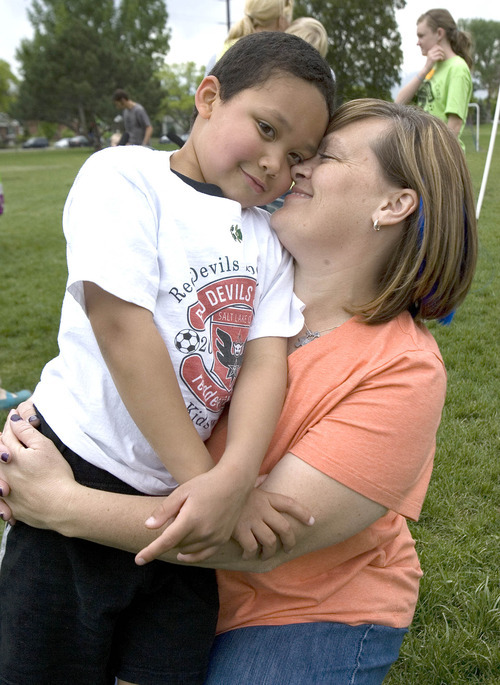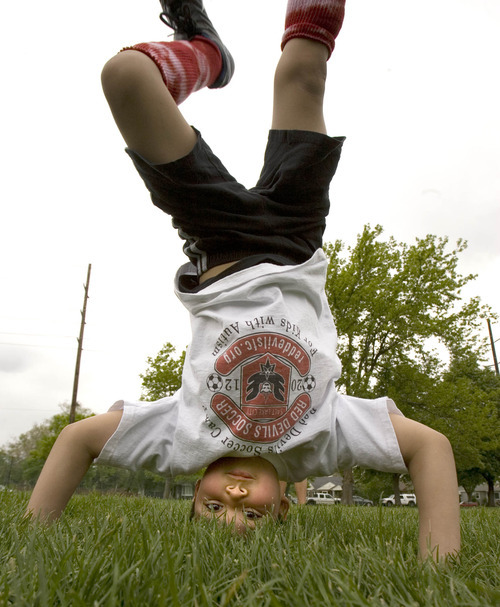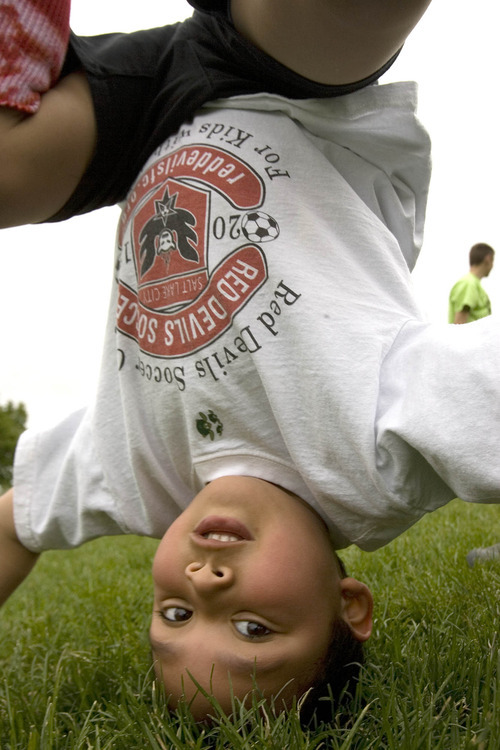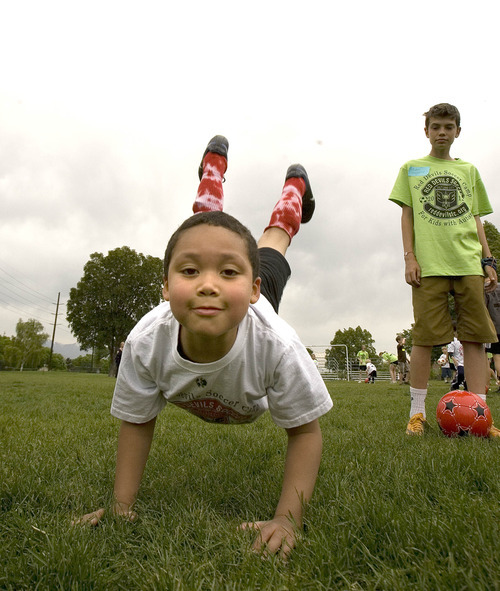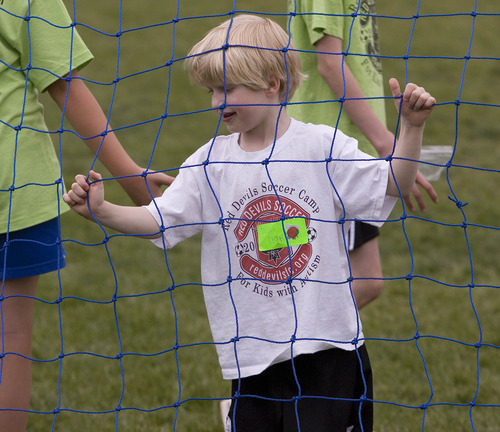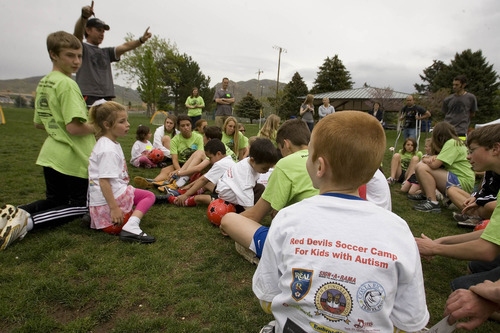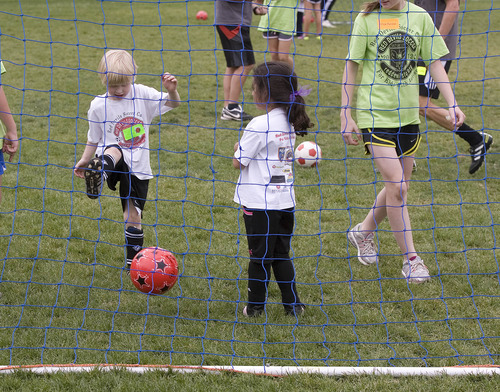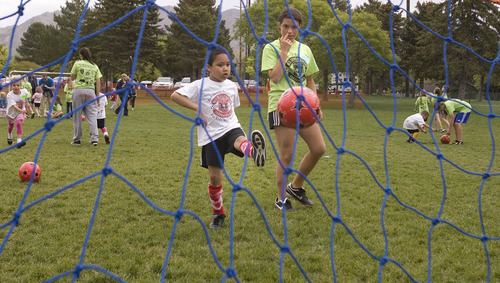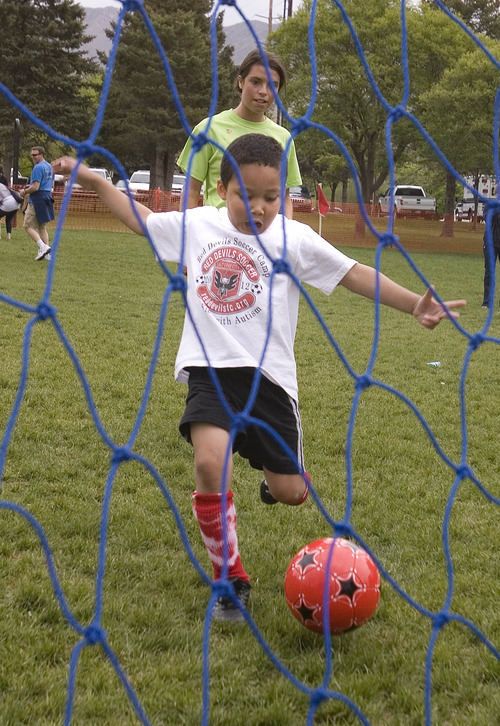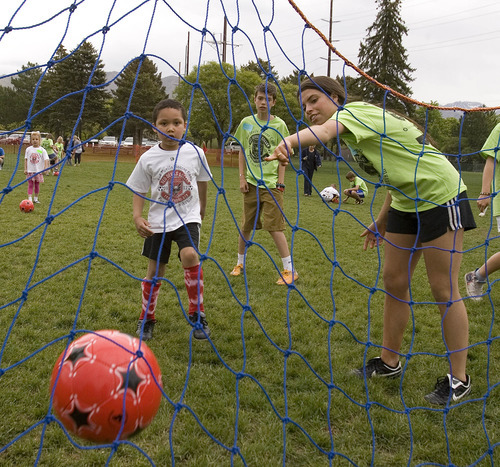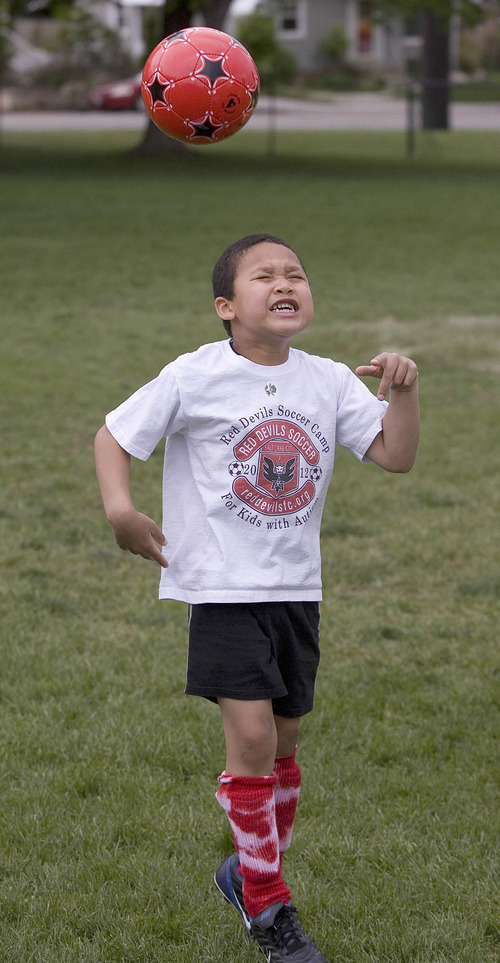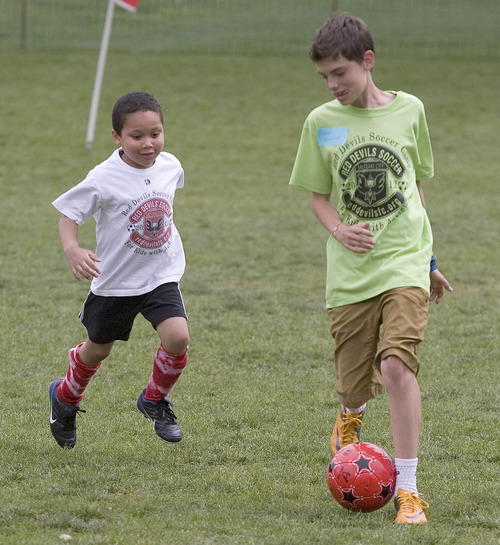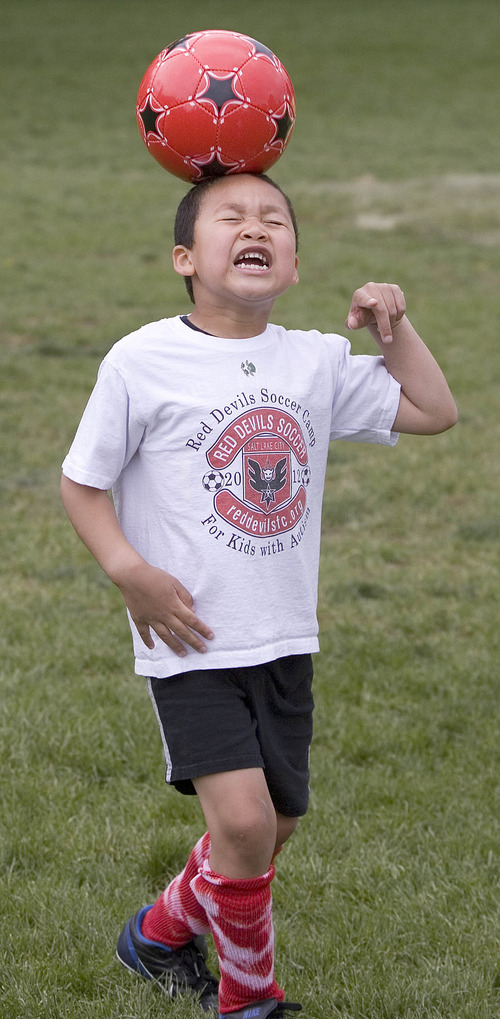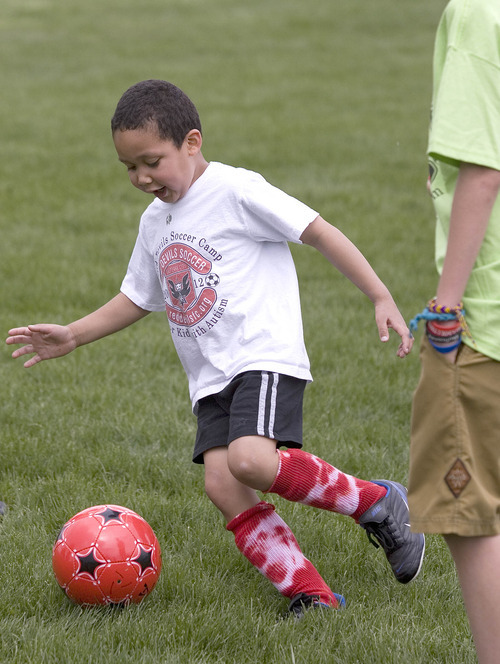This is an archived article that was published on sltrib.com in 2012, and information in the article may be outdated. It is provided only for personal research purposes and may not be reprinted.
When Charlie Cunningham goes to bed, the 5-year-old tucks his soccer shin guards beneath his pillow. If he's awake, the little boy with autism prefers to stay in uniform.
But for some children like Charlie, whose lives are often uniquely shaped by an autism spectrum disorder, playing on a regular soccer team may seem like an impossible dream. Whether it's heightened sensory reactions, difficulty following directions or verbal limitations, these kids can be on the sidelines.
Not this week.
Inspired by Charlie's love of the game, a local soccer club called the Red Devils ran a clinic for several dozen children with autism that had him doing handstands with excitement. Using young players and other volunteers as mentors for the children, the clinic hosted 55 kids between the ages of 3 and 10, with more on a waiting list.
They ran; they kicked; they played a soccer version of Duck, Duck, Goose. But most of all, many of them tried something new.
"Our goal was never to make them all soccer players," said Michelle Jensen, who lives next door to Charlie in Salt Lake City and helped spearhead the event at the Carmen B. Pingree Center for Children with Autism and nearby fields.
One mother, in tears, hugged Jensen in gratitude. Some parents said they hoped to find a soccer team for special needs children, but may need to create one on their own.
The impact of Utah's skyrocketing number of children with autism is rippling across the state as schools and specialists deal with what one study recently suggested might be the highest rate in the nation. In March, the Centers for Disease Control and Prevention released a study of about 2,000 children in an unnamed community on the Wasatch Front where one out of 47 children were identified with autism. The rate is based on a review of health and school records. Not all the children had been diagnosed.
For many of these parents, swamped with scheduling doctor and specialist visits, just having someone else in the community organize something for their family is a gift.
"It's a really nice feeling," said Melyssa Smith, whose 4-year-old son was participating in the clinic. "That people care enough about our kids that they would put together something that ... 'normal kids' would do."
The older kids serving as mentors said they had learned a lot about autism through the clinic. For one, kids had different skill levels. Some practiced kicking the ball into the goal net while others thrilled to be chased. Another little girl was content rolling the ball on the soft grass.
"Every kid with autism is unique in their own way," said Parker Winchester, 15, one of the Red Devils players who acted as a mentor.
Charlotte Huntzinger, whose daughter is a Red Devil and mentor, encouraged the volunteers to focus on positive reinforcement. Like other parents, she wanted the teenage mentors to experience the value of giving back.
"I tend to think a lot about myself and what's going on around me," Savannah, her 15-year-old daughter said. "This camp has taught me that even though I might not be having the most fun time, even if the kid next to me is ..... that I need to help them have fun because it's about them — not me."
Her mom, an autism specialist, saw the kind of victories many parents strive for. One boy, about 4 years old, screamed and cried the first day of the two-day clinic. He refused to come onto the fenced-in enclosure on the field, designed to prevent the kids from running away.
"By the end we had him kicking the ball into the goal," Huntzinger said.
Autism in Utah
O The state is launching a pilot program to offer treatment for young children with autism. To read more, go to http://www.health.utah.gov/cshcn/AutismTxAcct/index.html.


